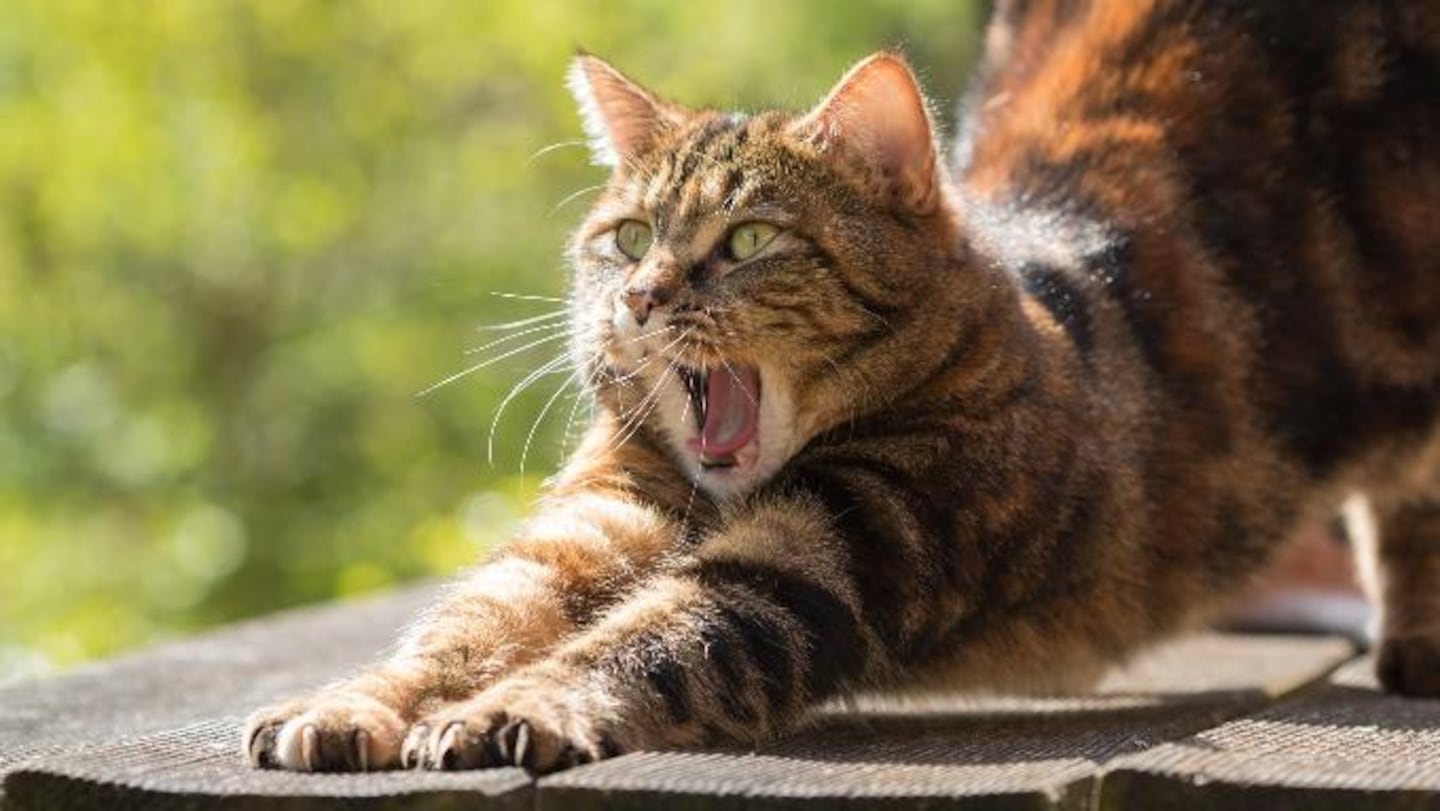BOSTON — Planning to declaw your cat? Scratch that. It’s now illegal in Massachusetts, except for rare medical cases.
Gov. Maura Healey on Thursday signed An Act Prohibiting Inhumane Feline Declawing into law, the Animal Legal Defense Fund said in a statement.
The new law bans cat declawing in Massachusetts, except in rare situations of medical necessity, such as a cancer in the nail bed or other conditions that jeopardize the cat’s health, the group said.
“This law will protect countless cats in the Commonwealth from a painful and unnecessary surgical procedure that is typically performed for human convenience rather than the cat’s well-being,” Animal Legal Defense Fund Senior Legislative Affairs Manager Stephanie Harris said in a statement.
Massachusetts joins New York and Maryland that also have declaw bans, and jurisdictions including Los Angeles, San Francisco, Pittsburgh, Madison, West Hollywood, Austin, Denver, Beverly Hills, Berkeley, and Washington, D.C., according to the Animal Legal Defense Fund. Virginia has also banned the procedure with limited exemptions.
According to animal advocates, cat declawing is an invasive surgical operation that is akin to amputating the last knuckle of a human finger. Declawing can cause lifelong medical issues for cats, including permanent disability, nerve damage, chronic back pain, and lameness.
“Massachusetts joins other states that have effective declaw bans, alongside the many local laws that have been passed in cities of all sizes,” Harris said. “We hope to build on this momentum in 2025 as we continue to advocate for cat declaw bills nationwide, including in neighboring Rhode Island.”
Declawing an animal is “abhorrent,” said state Sen. Mark Montigny, a Massachusetts Democrat representing the Second Bristol and Plymouth district.
“Declawing is an abhorrent practice that most veterinarians view as inhumane, but it is also a procedure that is widely misunderstood and requested by owners,” Montigny said in a statement.
“By passing this law, veterinarians will no longer have to weigh the choice knowing that if they don’t provide the procedure an owner is likely to just look for someone who will,” Montigny said. “This is another step in my commitment to protect animals in the Commonwealth.”
The declaw bill passed on the last day of the two-year legislative session. It joins other laws passed in the Bay State to protect animals, including laws to protect wild animals used in circuses, dogs entrusted to daycare or boarding facilities, puppies and kittens too young to be separated from their mothers, as well as human and animal victims trapped in violent situations using coercive control, officials said.
According to animal advocates, declawing can cause many adverse behavioral effects in cats because it removes their ability to use their claws to scratch, stretch, and mark territory. Issues with litterbox use and inappropriate marking are common in declawed cats, and some declawed cats resort to biting — which can lead to infection in humans — to defend themselves because they no longer can with their claws.
“All of these behavioral issues can make it more likely for cats to be surrendered to shelters,” the Animal Legal Defense Fund said in its statement. “There are many humane alternatives to control scratching behavior, including regular nail trims, scratching posts, and behavioral training.”
In June, a poll by the Animal Legal Defense Legislative Fund showed that 70 percent of veterinary professionals oppose cat declawing. The poll also found that half of the veterinarians interviewed reported that their practice does not perform any declawing procedures due to policy or no veterinarians willing to perform the procedure.
Lawmakers in neighboring Rhode Island, including Rhode Island Sen. Melissa Murray and Rhode Island Rep. William O’Brien, both Democrats, are calling for a declaw ban in that state.
In April, a similar declaw bill sponsored by Murray passed through the Rhode Island Senate, but failed to pass in the House before the legislative session ended in June, The Valley Breeze earlier reported.
“Declawing is an amputation surgery with serious and often life-long consequences. Declawed cats often become fear biters and carpet wetters, putting them at greater risk for surrender or abandonment; many suffer from crippling arthritis in old age,” said Murray. “Declawing has no place in our society.”
This is a developing story. Check back for updates as more information becomes available.
Download the FREE Boston 25 News app for breaking news alerts.
Follow Boston 25 News on Facebook and Twitter. | Watch Boston 25 News NOW
©2025 Cox Media Group









